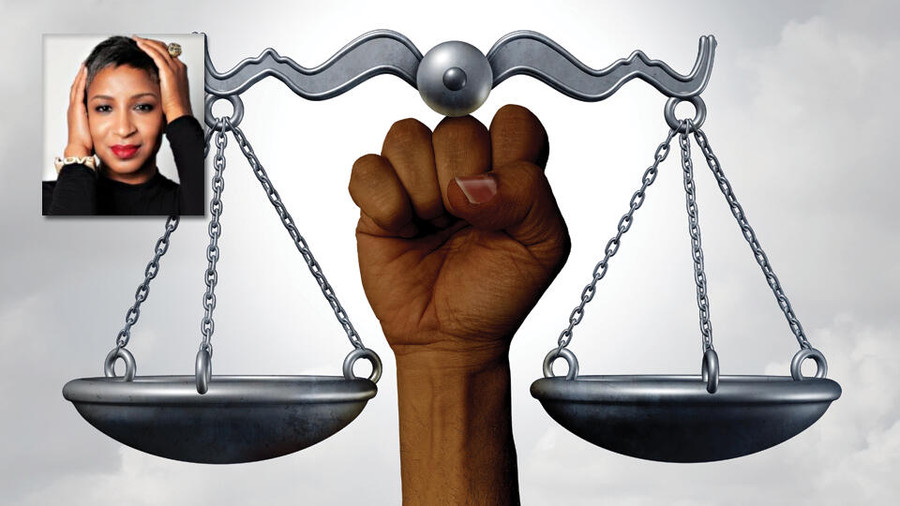No matter where you are on the political spectrum, there is no disputing the George Floyd protests galvanized the world. It mobilized people of all ages, racial backgrounds. Laid bare before the world are this country’s unhealed wounds of police brutality as the result of systemic racism. The outcome was the largest civil rights movement in history where millions of people took to the streets around the globe.
I knew during the first week of the protests that this was a watershed moment. I live in a gentrified neighborhood in Brooklyn, surrounded by trendy restaurants and shops. It’s diverse, but it is certainly not the bedrock of civil unrest. Steps away from homes that sell for more than $3 million, a crowd of all racial backgrounds torched a police van. As I watched that van go up in flames, I thought, “This moment is different and there is no turning back now.”
The current times are not a flash moment in history, but the turning of a tide for consumers who are demanding transparency and accountability from the brands they use.
The empty equity statements were no longer going to be satisfactory. All of my black corporate friends who normally shy away from discussing race at work for fear of being labeled angry were demanding action. People initiated uncomfortable conversations at their churches, schools, the volunteer organizations, and other communities. I was one of the panelists at the XBIZ town hall on racism with over 200 participants where we had a robust and authentic conversation about our experiences in the pleasure products industry and the way forward. The message was clear: Marching was the beginning and not the end of the discussion.
The most important lesson to learn about the current moment is that it is beyond politics. The solutions to racial injustice have often been boxed into the four corners of policy change. However, consumers are bringing their activism to their shopping decisions by utilizing the global reach of social media to point out brands that don't reflect their values. Some call it cancel culture; I call it accountability. Whatever you sell in your stores or you manufacture should be able to withstand the scrutiny of a customer who understands the power of her money. Referring to consumer activism as cancel culture is belittling to informed and empowered consumers that can influence others to act.
Strangely, the pleasure products industry has escaped the public scrutiny other industries deal with. An insular industry servicing a consumer that demands discretion has protected it from the impact of accountability. It certainly can be disruptive for a brand to deal with an angry audience and it can be a costly way to learn what matters to your customers.
Your average customer (let’s call her Alex) probably will not express outrage of racist packaging of her sex toy purchase. She may have noticed before, but shrugged it off. But Alex sees an influencer she follows on Instagram talk about racism. Alex sees another influencer talk about a similar issue on Twitter a day later and this time her friend retweets it. Alex now may be motivated to take the risk of sharing this with her Facebook community. Alex taking this bold step encourages others to do the same. Add a catchy hashtag and you now have a groundswell.
Why should you care? I would like to think an industry known for openness would advocate social change, but I am also a pragmatist. You should care because it's not pragmatic for you not to.
According Nielsen’s 2019 Diverse Intelligence Series (DIS) Report on African Americans: “At 47.8 million strong and a buying power that’s on par with many countries’ gross domestic products, African Americans continue to outpace spending nationally,” said Cheryl Grace, Nielsen’s senior vice president of Community Alliances and Consumer Engagement and co-creator of the DIS Report. “There are several drivers, but culture is at the center of them all. Further, with their love for technology, they are much more savvy and conscious consumers. They are as we say, ‘woke.’ They pay attention to how companies are speaking to them. As they spend more, they want more for themselves and from the brands they support.” (Source: 2019 Nielsen Press Release)
What are the actionable steps the pleasure products industry should take?
1. Hire black women and other women of color. We know the positive impact designing female-centric products has had on the industry, but the industry has to involve women of color to evolve. There are certainly amazing influencers of color, but include copywriters, designers, sales professionals, and other service providers of color in your hiring choices. Selling products to a community without representation will land as pandering and will fall flat.
2. People go where they feel welcome. If you have mostly white, thin women on your website, packaging or your displays, you have a problem. Hard stop. America simply doesn’t look like this anymore. You may think you are selling fantasy, but people will spend more when they feel seen and honored. When people feel uncomfortable in an environment they generally don’t complain, they just don’t come back and tell someone else about their experience. If you operate a store, let your customers know you are truly committed to providing a comfortable and inviting environment by training staff on the nuances of speaking to people of different backgrounds. Our experiences with sex are highly influenced by culture and you have to put in the effort to communicate effectively with different audiences.
3. Take a stand. The leaders in this industry are some of the most resilient people I know. You sustain successful businesses without traditional funding or access to pandemic-related resources. The daily barriers we deal with would sink others. We are the misfits of the business community. However, your resiliency is your gift. In “The Soul of Money,” Lynne Twist says the act of taking a stand creates “the clearing and context for conversation that invites others to step forward and be heard.”
Use your power to push back on manufacturers and distributors who sell products with racist imagery or derogatory language. Ally with people of color who have shared their experiences and empower their initiatives. Use your voice in your local communities.
Taking on inclusion goes beyond putting up a Black Lives Matter sign. The current times are not a flash moment in history, but the turning of a tide for consumers who are demanding transparency and accountability from the brands they use. The pleasure products industry is the perfect band of misfits to answer the call.
The world is watching.
Lidia Bonilla is a pleasure strategist and founder of House of Plume, an intimate lifestyle brand, and co-founder of the Women of Sex organization.







